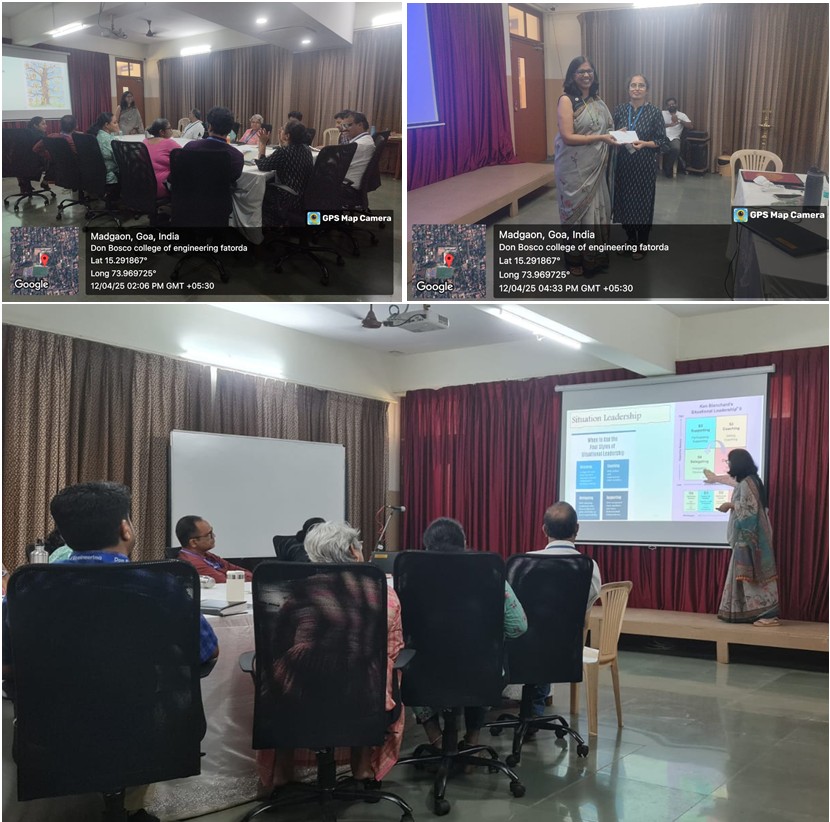“Leadership Workshop” organised by TLET Cell

The Teaching-Learning Educational Technology (TLET) Cell of Don Bosco College of Engineering organized an enriching and insightful Leadership Workshop on 12th April 2025. The session was facilitated by Dr. Divya Singhal, a renowned professor from the Goa Institute of Management (GIM). The primary objective of the workshop was to create a space for faculty members to reflect on their leadership journeys, understand their personal values, and explore how leadership can be applied effectively within academic environments. The session emphasized the importance of team dynamics, collaboration, and co-leadership, particularly in the context of engineering education.
Throughout the workshop, Dr. Singhal engaged the participants in various interactive activities and scenario-based tasks designed to simulate real-life academic challenges. One of the core activities involved giving each group a specific context, such as redesigning their engineering department, and asking them to demonstrate leadership in action. This task helped participants apply leadership strategies in a practical and meaningful way, encouraging critical thinking and collective problem-solving.
Dr. Singhal also introduced the participants to Ken Blanchard’s Situational Leadership Theory, explaining the four key leadership styles—Directing, Coaching, Supporting, and Delegating. She illustrated how each style can be effectively applied in academic settings depending on the maturity and readiness of the team. These insights were reinforced through group discussions and role-playing exercises. Additionally, the concept of systems thinking was discussed, which encouraged participants to view their departments as interconnected systems, rather than isolated units, when making leadership decisions.

A powerful reflective exercise involving the “Mirror and Window” technique was used to conclude the session. The “Mirror” encouraged participants to identify something they realized about themselves and their leadership style during the workshop, while the “Window” prompted them to recognize an idea, experience, or perspective shared by others that stayed with them. Overall, the workshop proved to be a meaningful and transformative experience. Faculty members left with a renewed sense of purpose, practical tools for leadership, and a deeper understanding of how to foster collaboration and lead change within their academic departments.













 Visit Today : 341
Visit Today : 341